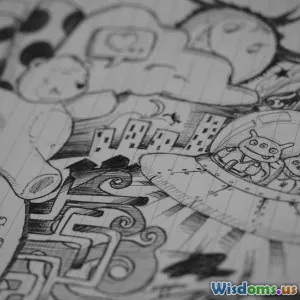
Are Dreams Messages from the Beyond or Just Random Thoughts
4 min read Explore whether dreams are supernatural messages or mere byproducts of the brain's activity in this comprehensive analysis. (0 Reviews)
Are Dreams Messages from the Beyond or Just Random Thoughts?
Dreams have fascinated humans for millennia, inspiring mythologies, religions, and philosophical inquiries. Every night, as we slip into slumber, enigma unfolds behind closed eyelids—cryptic images, bizarre events, vivid emotions. But what exactly are these nocturnal experiences? Are they messages beamed from another plane of existence, clues from the beyond? Or are they simply random electrical firings in the brain, without intrinsic meaning? This article delves deep into the mystery of dreams, weighing scientific explanations against supernatural interpretations to offer a balanced view of this eternal question.
The Ancient Fascination with Dreams
Historical records reveal that dreams have long been thought to carry profound significance. Ancient civilizations saw dreams as divine communication. In ancient Egypt, dreams were considered oracles sent by gods. The Epic of Gilgamesh, one of the oldest literary works, contains prophetic dreams guiding characters. Similarly, Greeks believed that gods influenced dreams—most famously, the god Morpheus was said to shape dreams.
Religious scriptures worldwide echo this belief. In the Bible, Joseph’s prophetic dreams forecasted the future of Egypt. The Qur'an includes accounts of dreams conveying divine revelation. Such traditions elevated dreams to mystical dimensions, reinforcing the idea that they transcend mere mental noise.
Yet despite cultural reverence, interpretations varied widely with context and personal belief. Some cultures regard nightmares as warnings; others see them as journeys of the soul.
Scientific Perspectives: Dreams as Brain Activity
Modern science offers a radically different interpretation—dreams as manifestations of brain processes during sleep.
Neuroscience and REM Sleep
Research into Rapid Eye Movement (REM) sleep, discovered in the 1950s, unlocked keys to understanding dreaming. During REM, the brain becomes highly active, similar in some ways to wakefulness, while the sleeper experiences muscle paralysis. This phase is strongly correlated with vivid dreams.
Brain imaging studies find specific regions, like the limbic system (emotions) and visual cortex, highly engaged during REM. Conversely, the prefrontal cortex, responsible for logic and rational thought, is notably less active—explaining often irrational but emotive dream content.
Random Activation-Synthesis Hypothesis
One leading scientific theory, proposed by J. Allan Hobson and Robert McCarley in 1977, is the Activation-Synthesis Hypothesis. It posits that dreams result from random electrical impulses triggering memories and sensations, which the brain then weaves into a semi-coherent narrative.
According to this view, dreams have no inherent meaning; they are byproducts, neutral and arbitrary echoes of neural firing. The brain synthesizes these signals, but any perceived symbolism or messages are constructed after waking by our interpretive mind.
Psychological Theories: More Than Mere Noise
Contrasting with pure randomness, psychologists suggest dreams serve vital subconscious functions.
Freud’s Psychoanalytic Interpretation
Sigmund Freud famously argued that dreams reveal hidden desires and unresolved conflicts. According to Freud, dreams are the
Mysteries & The Supernatural
Rate the Post
User Reviews
Popular Posts




















